Pandemic Preparedness in the Context of Climate Change
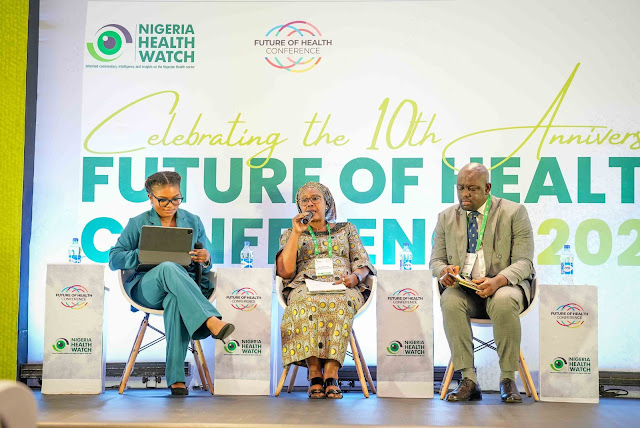
The Coalition for Epidemic Preparedness Innovations (CEPI)-hosted a fireside chat at The Future of Health Conference brought together leaders
Purple Ball 2024
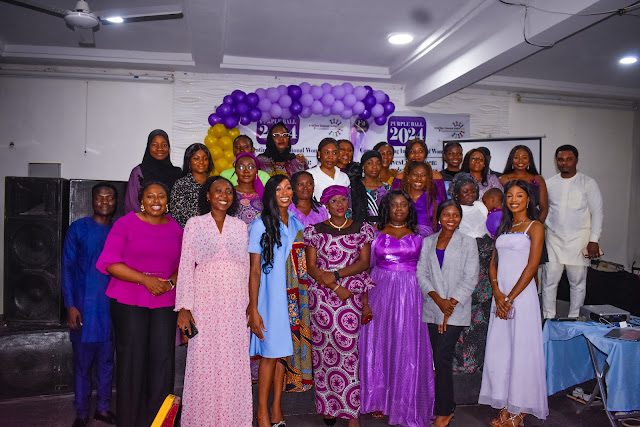
Strong Enough Girls Empowerment Initiative (SEGEI) collaborated with GLAMODI Women and Girls Development Initiative to host its ninth annual Purple Ball
Cultural Exchanges Through Theater Performance
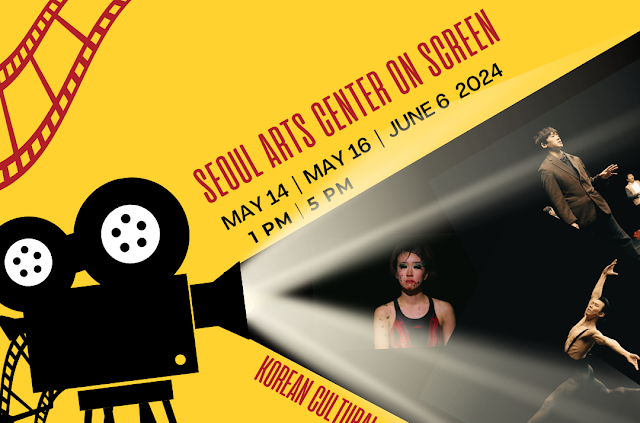
Arojah Royal Theatre, in collaboration with the Korean Cultural Centre, hosted a theater event titled Seoul Arts Center (SAC) on Screen
Empowering Women at the Wassa IDP Conference

Stand With A Girl (SWAG) Initiative hosted an event at the Wassa IDP Camp in Abuja, Nigeria, to commemorate the 2024 International Women’s Day.
World Cancer Day Walk 2024
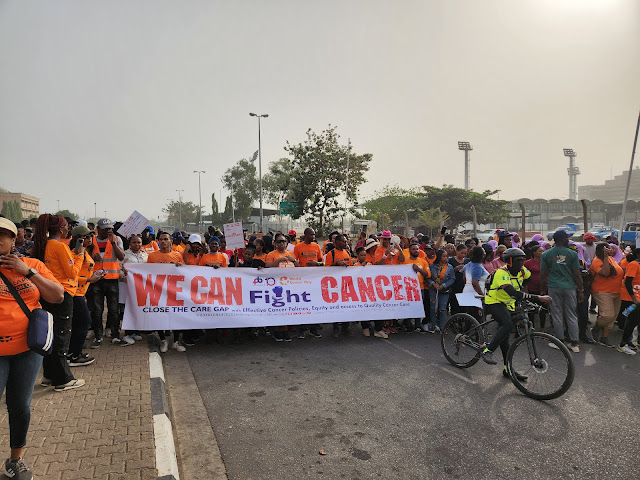
Since 2015, this organization has been at the forefront of World Cancer Day activities in Nigeria, and this year’s edition carried the same message
Addressing Period Poverty with Our Short Film, FLOW

Let us talk about something that affects millions of women and girls worldwide but often remains shrouded in silence and stigma: period poverty and shame.
Red Shoe Campaign Against Gender-Based Violence
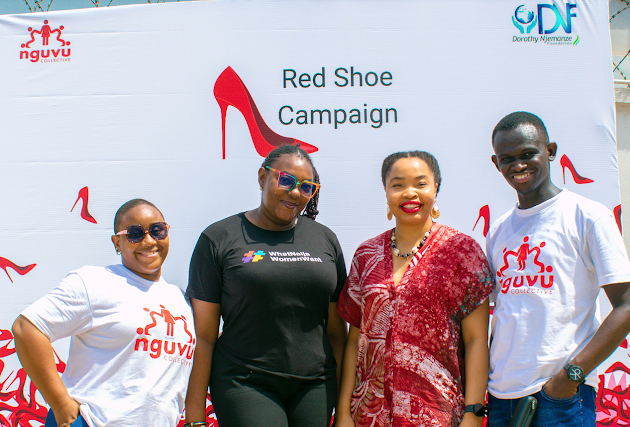
On March 15, 2024, Shades of Us participated in the #RedShoeCampaign organized by Nguvu Collective and the Dorothy Njemanze Foundation (DNF).
Inspiring Inclusion
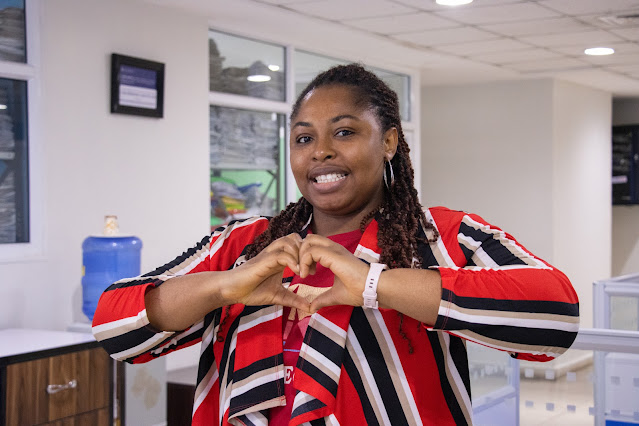
Let us clap for women, for their resilience, courage, and the indelible mark they have left on the pages of history. International Women’s Day, celebrated every March 8, is a resounding applause for the achievements, struggles, and progress of women worldwide. The genesis of International Women’s Day can be found in the women’s suffrage movement, a time when the world first began to deliberately record a groundswell of advocacy for equality. The inaugural National Women’s Day took place in the United States on February 28, 1909, organized by the socialist movement. Building on this momentum, the International Women’s Conference proposed an international day of celebration a year later. From these humble beginnings emerged a global tradition dedicated to recognizing the invaluable contributions of women and acknowledging the challenges they continue to face. International Women’s Day not only serves as a testament to the progress made but also as a rallying cry for the ongoing pursuit of gender equality. Historical Context Marginalized and displaced women in Africa face multifaceted challenges that demand attention and concerted efforts for sustainable solutions. Across the continent, numerous factors contribute to the vulnerability of these women, exacerbating their already complex circumstances. In conflict-ridden regions, women often find themselves disproportionately affected, becoming victims of violence, displacement, and exploitation. Displacement, whether due to conflict, natural disasters, or economic hardships, disrupts the stability of communities and forces women into precarious situations. This situation is particularly acute for marginalized groups, including ethnic minorities and indigenous communities, who may face additional layers of discrimination. Moreover, access to education and healthcare remains a persistent issue for marginalized women in many African countries, limiting their opportunities for personal and economic development. Empowering these women requires addressing systemic issues, fostering inclusivity, and creating avenues for education and skill development tailored to their needs. Women Inspiring Inclusion Wangari Maathai – Kenya: A Nobel Peace Prize laureate, Wangari founded the Green Belt Movement, empowering women through environmental conservation. The movement not only contributed to sustainable development but also elevated women’s roles in community leadership. Ellen Johnson Sirleaf – Liberia: She made history as Africa’s first female democratically elected head of state. Her presidency in Liberia marked a significant breakthrough, inspiring a new era of leadership for women in politics. Chimamanda Ngozi Adichie – Nigeria: She is a renowned author and feminist, who has used her literary works to challenge stereotypes and advocate for gender equality. Her impactful writings contribute to reshaping perceptions and inspiring dialogue on inclusivity. Oulimata Sarr – Senegal: Sarr, a passionate advocate, is the Regional Director for UN Women in West and Central Africa. Her work focuses on advancing gender equality, and she has been instrumental in promoting women’s rights and inclusion in the region. Malala Yousafzai – Pakistan (with African advocacy): While originally from Pakistan, Malala Yousafzai’s global advocacy for girls’ education extends to Africa. Through the Malala Fund, she has supported initiatives in countries like Nigeria and Kenya, amplifying the importance of education as a tool for inclusion. Dlamini-Zuma – South Africa: Nkosazana, former Chairperson of the African Union Commission, has been a key figure in continental diplomacy. Her leadership exemplifies the increasing recognition of women in high-ranking political roles, paving the way for more inclusive governance. Afua Hirsch – Ghana/UK: She is a British-Ghanaian author and broadcaster who uses her platform to address issues of race, identity, and gender. Her advocacy contributes to a more inclusive dialogue, fostering understanding and collaboration across diverse communities. Movements Inspiring Inclusion #BringBackOurGirls – Nigeria: Originating in Nigeria, this movement gained international attention, advocating for the safe return of kidnapped school girls. It showcased the power of activism in mobilizing communities and shedding light on issues affecting women and girls. Women of Zimbabwe Arise (WOZA) – Zimbabwe: This is a movement that empowers women to address socio-economic and political challenges. Through peaceful protests, it has demonstrated the potential of collective action in fostering inclusivity and advocating for change. #TotalShutdown – South Africa: This movement, which began in South Africa, brought attention to gender-based violence and femicide. Activists organized marches and campaigns, igniting a nationwide conversation and compelling authorities to address the pressing issue. Limitations to Inspiring Inclusion: Cultural Barriers: Deep-rooted cultural norms and traditions can pose challenges to inspiring inclusion. Resistance to change within communities may impede the progress of initiatives aimed at empowering women and promoting inclusivity. Limited Access to Resources: Many community movements face resource constraints, hindering their ability to scale impactful initiatives. Limited funding, technology, and educational resources can limit the reach and sustainability of inclusion efforts. Political Instability: In regions with political instability, gender equality organizations may face increased challenges. Repression, lack of governmental support, and security concerns can hamper the effectiveness of initiatives promoting gender equality. Lack of Legal Protections: In some areas, the absence or inadequacy of legal protections for women’s rights hinders progress. Insufficient laws addressing gender discrimination and violence create an environment where inclusive efforts face resistance and setbacks. Resistance to Change: Resistance from individuals, communities, or institutions unwilling to embrace inclusivity poses a significant limitation. Overcoming entrenched attitudes and fostering a mindset shift can be a prolonged and challenging process. Future Outlooks for Inspiring Inclusion: Technology as an Enabler: Continued advancements in technology offer opportunities for greater inclusion. Digital platforms can amplify diverse voices, provide educational resources, and facilitate connections that bridge geographical and cultural gaps. Intersectional Approaches: Embracing intersectionality will be crucial for a more comprehensive approach to inclusion. Recognizing the interconnected nature of various identities, including gender, race, and socio-economic factors, ensures that initiatives address the unique challenges faced by diverse groups. Youth Engagement: The active involvement of younger generations is a promising avenue for inspiring inclusion. Empowering youth through education, mentorship, and leadership opportunities can foster a more inclusive mindset that will shape the future. Social Responsibility (SR): Increasing corporate commitments to social responsibility can drive positive change. Companies adopting inclusive policies, supporting diversity in leadership, and investing in community initiatives contribute to a more equitable landscape. Policy Reforms: Ongoing advocacy for
International Women’s Day (2023)
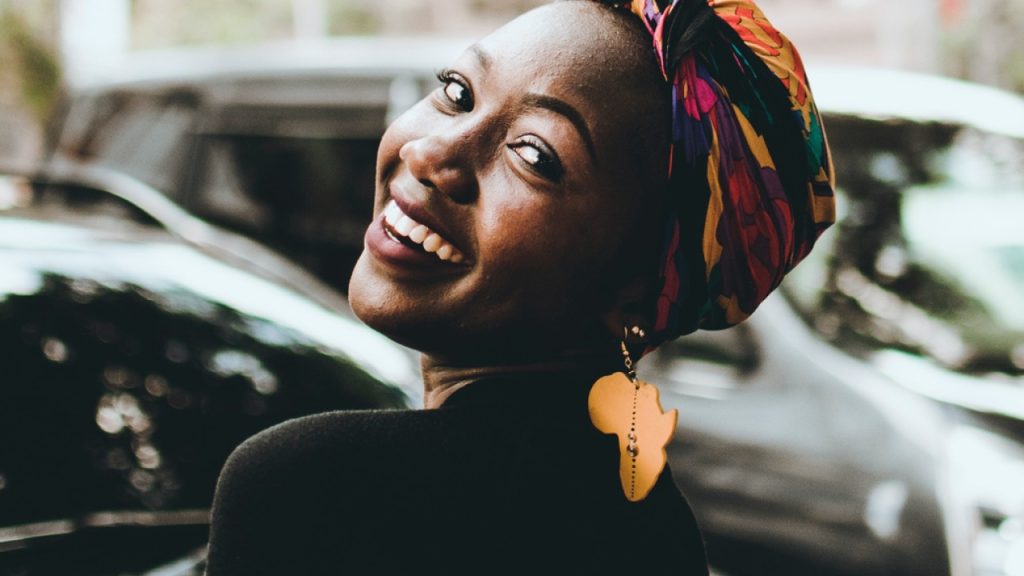
International Day Of Education (2023)


